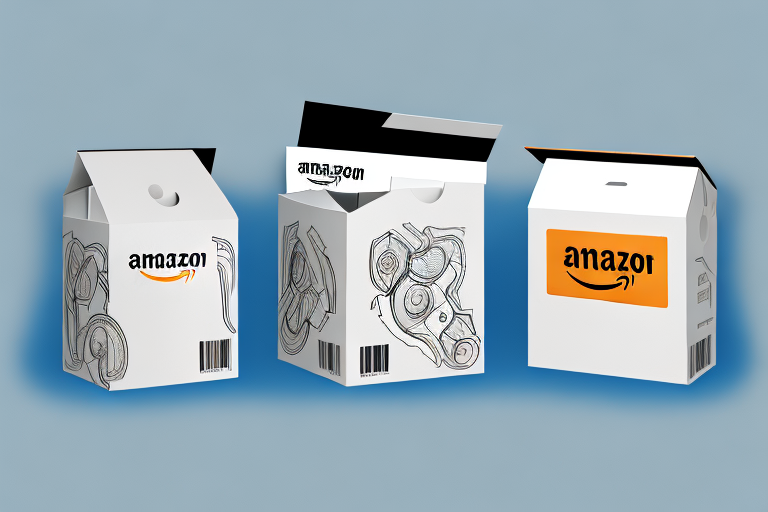Comparing FBA vs FBM on Amazon: Which Is the Better Option?
Starting an Amazon business involves making crucial decisions, and one of the most significant is choosing between Fulfillment by Amazon (FBA) and Fulfillment by Merchant (FBM). Both fulfillment methods have distinct advantages and drawbacks that can significantly impact your business success on the platform. This comprehensive guide delves into the intricacies of FBA and FBM to help you make an informed decision.
Understanding FBA and FBM on Amazon
FBA and FBM are two primary fulfillment methods Amazon offers to its sellers:
- FBA (Fulfillment by Amazon): Amazon manages storage, picking, packing, shipping, and customer service for your products.
- FBM (Fulfillment by Merchant): You handle storage, packing, shipping, and customer service independently.
Choosing the right method depends on your business model, resources, and objectives.
FBA vs FBM: Key Differences
- Control: FBA offers less control over fulfillment, while FBM provides greater autonomy.
- Cost: FBA may have higher upfront costs but can lead to increased sales, whereas FBM might be more cost-effective for certain products.
- Scalability: FBA is generally more scalable, benefiting sellers looking to expand rapidly.
How FBA Works
With FBA, you send your products to Amazon's fulfillment centers. When a customer places an order, Amazon handles the shipping, customer service, and returns. This seamless process allows you to focus on other aspects of your business.
Benefits of Using FBA
- Prime Eligibility: FBA products are eligible for Amazon Prime, offering customers free two-day shipping, which can boost sales.
- Customer Trust: Amazon’s reliability enhances customer trust, potentially increasing conversion rates.
- International Reach: FBA facilitates global shipping, enabling you to tap into international markets effortlessly.
Considerations for FBA
- Costs: FBA fees include storage, fulfillment, and additional services, which can affect your profit margins.
- Inventory Management: Proper inventory forecasting is essential to avoid long-term storage fees.
How FBM Works
FBM requires you to manage the entire fulfillment process. This includes storing inventory, packing orders, shipping products, and handling customer inquiries and returns.
Advantages of Using FBM
- Control Over Fulfillment: Manage your own shipping methods and packaging, allowing for a personalized customer experience.
- Cost Efficiency: Potentially lower costs for products with slim profit margins.
- Flexibility: Better suited for unique or fragile products requiring special handling.
Challenges of FBM
- Time-Consuming: Handling fulfillment can be labor-intensive and may require additional resources.
- Customer Service: You are responsible for addressing all customer service issues, which can be demanding.
Pros and Cons of Using FBA
Pros
- Automated fulfillment process, saving time and resources.
- Access to Amazon Prime customers, potentially increasing sales.
- Enhanced scalability for growing businesses.
Cons
- Higher fees, which can impact profit margins.
- Less control over packaging and shipping details.
- Strict inventory management requirements to avoid additional fees.
Pros and Cons of Using FBM
Pros
- Greater control over the entire fulfillment process.
- Potentially lower costs for specific products.
- Ability to offer unique packaging and branding.
Cons
- Time-consuming and labor-intensive fulfillment process.
- Requires robust logistics and customer service capabilities.
- Possible challenges in competing with Prime-eligible products.
Cost Comparison: FBA vs FBM
Understanding the cost implications of FBA and FBM is crucial for maintaining profitability:
FBA Costs
- Fulfillment Fees: Based on product size and weight.
- Storage Fees: Monthly fees for inventory stored in Amazon's warehouses.
- Additional Services: Fees for services like labeling and prep.
According to Amazon's 2023 fee schedule, FBA fees can range from $2.50 to $5.00 per unit, depending on size.
FBM Costs
- Shipping Fees: Variable based on carrier and delivery speed.
- Storage Costs: Costs associated with managing your own inventory.
- Packaging Materials: Costs for boxes, packing materials, and labels.
For small businesses, FBM can save approximately 10-15% in fulfillment costs compared to FBA.
Which is More Cost-Effective?
The cost-effectiveness of FBA vs FBM depends on factors like product size, sales volume, and storage needs. For high-volume sellers with sizable inventory, FBA may offer better economies of scale, while FBM might be more suitable for niche products with lower sales volumes.
Shipping and Delivery Options for FBA and FBM
Both FBA and FBM offer distinct shipping and delivery options:
FBA Shipping Options
- Standard Shipping
- Expedited Shipping
- Priority Shipping
FBA also provides international shipping capabilities, allowing sellers to reach a global customer base. Additionally, tracking information is automatically provided to customers, enhancing transparency and trust.
FBM Shipping Options
- Choice of Shipping Carriers (Compare Shipping Carriers)
- Custom Delivery Options
- Personalized Packaging
FBM allows for greater flexibility in selecting carriers and delivery speeds, which can be tailored to meet specific customer needs and preferences.
Customer Service Considerations for FBA and FBM
Customer service quality can significantly influence your Amazon business reputation:
FBA Customer Service
- Amazon handles all customer inquiries related to shipping and fulfillment.
- Returns and refunds are managed by Amazon, ensuring consistency and reliability.
FBM Customer Service
- You are responsible for addressing all customer inquiries and issues.
- Direct control allows for personalized customer interactions, potentially enhancing customer satisfaction.
Effective customer service is vital for maintaining high seller ratings and positive reviews, which are essential for Amazon's search algorithms and Buy Box eligibility.
Choosing the Best Fulfillment Method for Your Amazon Business
Deciding between FBA and FBM requires a comprehensive evaluation of your business needs:
Assess Your Product Characteristics
- Size and Weight: Larger and heavier products may benefit from FBA’s logistics capabilities.
- Fragility: Unique or fragile items might be better managed through FBM for specialized handling.
Evaluate Your Business Resources
- Time and Labor: FBA reduces the time spent on fulfillment, allowing you to focus on growth.
- Financial Resources: Consider the upfront costs of FBA versus the ongoing costs of FBM.
Consider Your Sales Volume and Market Goals
- High sales volumes often align with FBA’s scalability.
- Targeting international markets may be more streamlined with FBA’s global infrastructure.
Case Studies: Success Stories with FBA and FBM
Many businesses have successfully leveraged both FBA and FBM to optimize their Amazon operations:
FBA Success Story: TechGadgets Inc.
TechGadgets Inc. utilized FBA to streamline their fulfillment process, allowing them to scale rapidly and achieve Prime eligibility. This led to a 30% increase in sales within the first year of using FBA.
FBM Success Story: HandmadeCrafts Co.
HandmadeCrafts Co. opted for FBM to maintain control over their unique packaging and personalized customer service. This approach helped them build a loyal customer base and differentiate their products in a competitive market.
Frequently Asked Questions About FBA and FBM on Amazon
- Q: Is FBA more expensive than FBM?
A: FBA can be more expensive for products with low profit margins due to storage and fulfillment fees. However, the increased sales potential may offset these costs. - Q: Can I use both FBA and FBM for my Amazon business?
A: Yes, many businesses use a hybrid approach, utilizing FBA for certain products and FBM for others based on profitability and fulfillment needs. - Q: How do I switch from FBA to FBM or vice versa?
A: You can change your fulfillment method by updating your product settings in Amazon Seller Central. - Q: Does FBA handle international shipping?
A: Yes, FBA offers international shipping options, allowing sellers to reach customers worldwide through Amazon’s global network.
Conclusion: Choosing the Right Fulfillment Method for Your Amazon Business
Ultimately, the decision between FBA and FBM hinges on your specific business needs, resources, and goals. FBA offers streamlined fulfillment and access to Amazon’s vast logistics network, making it ideal for businesses aiming to scale quickly and reach a broad audience. Conversely, FBM provides greater control and flexibility, which can be advantageous for sellers with unique product requirements or those looking to minimize fulfillment costs.
By carefully evaluating the factors outlined in this guide, such as product characteristics, business resources, and sales strategies, you can select the fulfillment method that best aligns with your objectives and sets your Amazon business up for sustained success.
Additional Resources
Stay Updated
Amazon's fulfillment services are continually evolving. Stay informed by regularly checking Amazon's official resources and industry reports to ensure your business strategies remain effective and competitive.






















